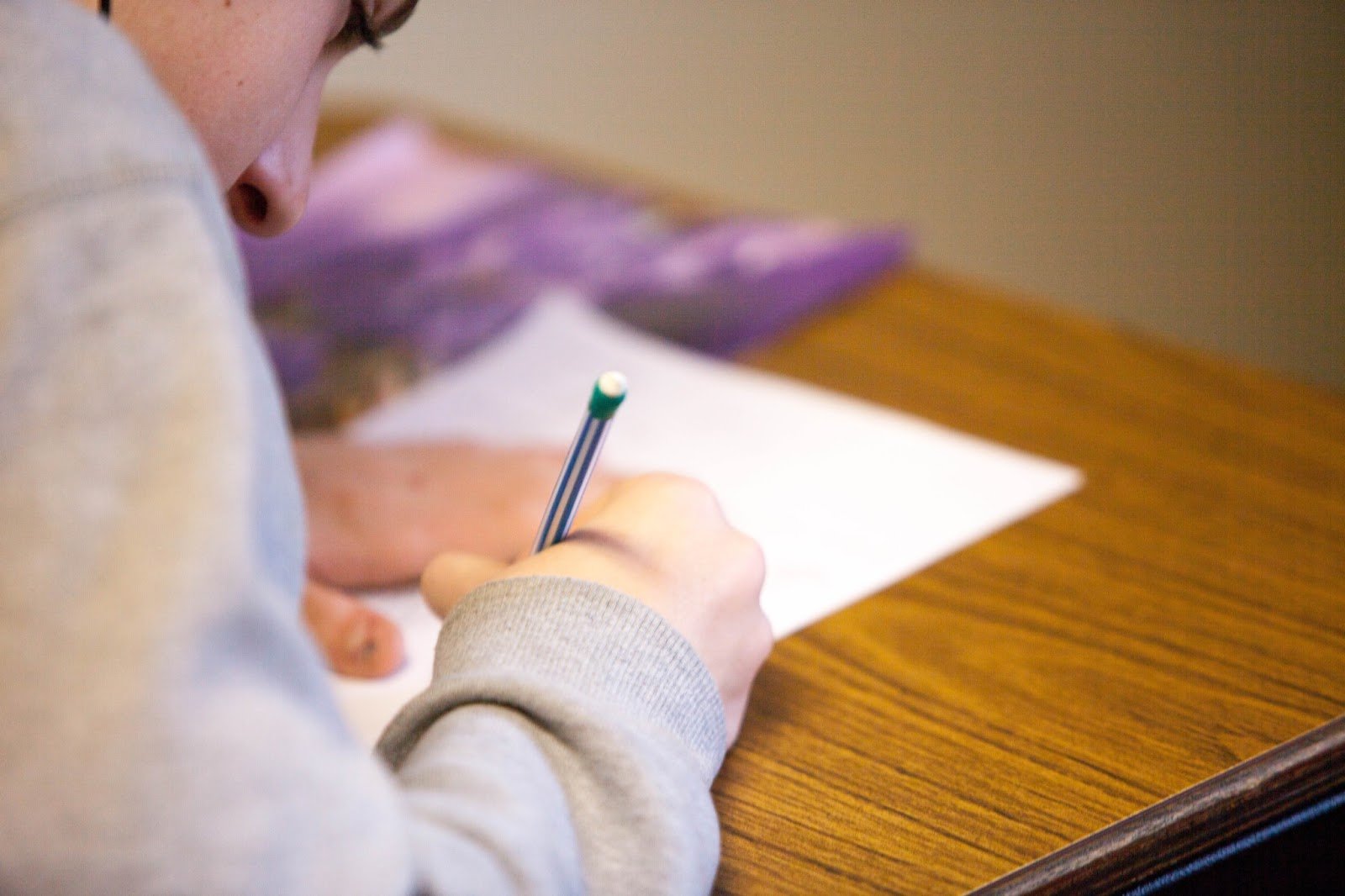Image by Ben Mullins
Are you revising for an upcoming exam? Looking for last-minute study tips to help prepare for a test? In this article, we list down a few of our favourite exam tips for students!
Exam Tip For Students #1: Know the format
If you’ve read some of our previous articles, you may have come across this tip which is to know the format of the exam. For English, whether you’re sitting for a speaking, listening, reading or writing paper, each of them will have a set format so students will have an idea of what to expect and won’t be caught by surprise.
Students will also know what to revise or practice for the exam. For example, for SPM English Paper 2 which is the writing paper, Part 1 requires students to write an email so you can practice writing emails beforehand. Find out more about the format for this paper by clicking here.
Knowing the format helps save time too as you would already be aware of the general instructions and what you need to do to fulfil the task. If you’d like to find out more about the SPM English speaking test, click here.
Exam Tip For Students #2: Learn how to skim and scan
This exam tip is especially useful for students who are sitting for language exams which test comprehension skills. Students often need to answer questions based on their understanding of the given texts.
Skimming is a skill used when someone wants to get a general idea of a text without needing to read every single word. Skimming is usually done before you read the questions so that you get a brief overview of the main points in the passage.
On the other hand, the scanning technique involves going through a text quickly line by line looking for specific information. For example, when a question asks you about a date or a name, you’d scan through the text looking for those details.
One scanning tip is to keep a lookout for words that have a similar meaning to the ones in the question. Besides that, having already skimmed through the text beforehand, you should already have an idea of where the answers might be located in the text.
Exam Tip for Students #3: Expand your Vocabulary
Image by Thought Catalog
Before sitting for an exam, revise the meanings of different words that are related to the topics that you have learned. Whether it’s for English, History or the Sciences, you could make your own glossary or dictionary where you list down all the new or difficult words and terms alongside their meanings. Before the exam, spend some time looking through the list to reinforce your memory.
Besides that, you can also create flashcards to help you revise. If you prefer doing this online, Quizlet is a good website to make digital flashcards which you can share with friends too. You can also find existing online flashcards created by others to use.
Exam Tip for Students Tip #4: Practice and practice more
If you want to get good at anything, a fair amount of practice is needed. Try answering past-year papers or sample papers to familiarize yourself with the process and to get a sense of your strengths and areas of improvement. This is the same reason why mock exams are carried out before big exams like SPM.
After completing a past or sample paper, make sure you also check your answers. Most workbooks will have an answer sheet at the back to refer to for self-marking. For essays, you can also ask your friends or teachers for feedback. If you make mistakes, don’t be discouraged. Learn from the mistake and remember to not repeat it during the actual exam.
Exam Tip for Students #5: Prepare a study timetable
Image by Jeswin Thomas
Another useful exam study tip is to draw up a timetable for revision. When planning your study timetable, think about what works best for you. Do you study better in the morning or in the evening? What days are you most free? Where can you find pockets of time to revise?
Instead of simply allocating big chunks of time to study, you should also specify what subjects or topics you’d like to cover. This ensures that you remain focused and allows you to plan better. Remember to also schedule in breaks in between!
Exam Tip for Students #6: Start your day right
You might be tempted to stay up late to study but always try to get enough sleep the night before an exam so that you will be fresh and alert the next day. You don’t want to get up on the wrong side of the bed! (which means to wake up in a bad, irritable or unhappy mood)
Do also pack your bags the night before and ensure that you have all the stationery you need. Have your clothes ready and if you need to iron your school uniform, it might be a good idea to do it in advance. This will help you feel calmer in the morning.
Remember to eat something too as hunger can distract you during the exam and you definitely don’t want to sit for an exam in a ‘hangry’ state! Lastly, don’t forget to keep yourself well hydrated by bringing a bottle of water into the exam hall.





